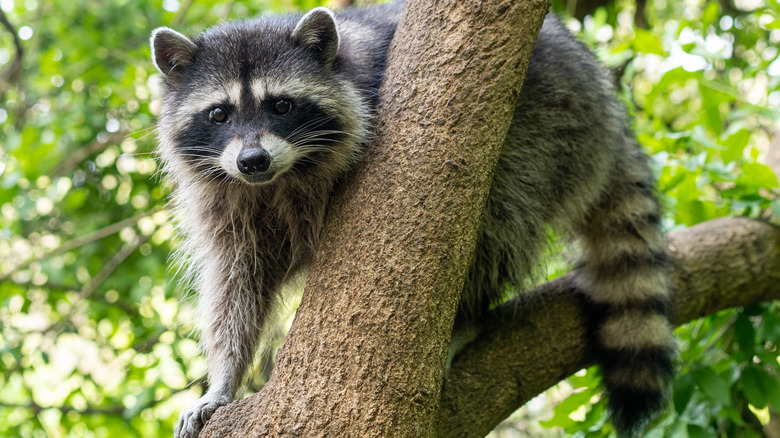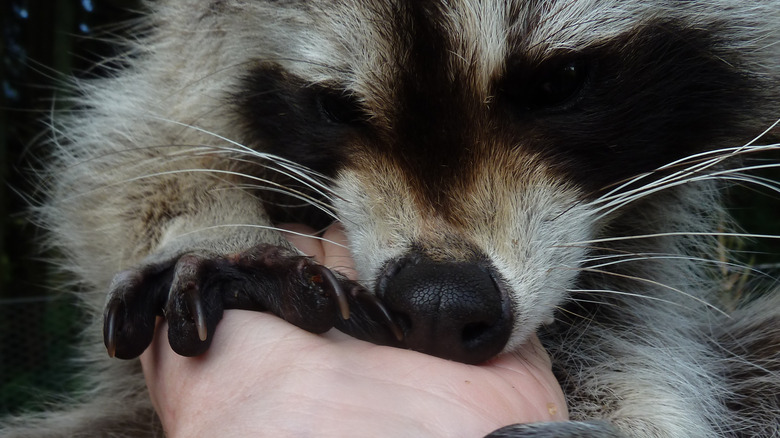The First Thing You Should Do After A Raccoon Bite
In 2015, over 29% of rabies cases across the country stemmed from raccoons — coming in second place only narrowly behind the bat, reports AAAnimal Control. These furry mammals with their signature black and white tails have been the source of rabies infections across various states spanning from the Northeast to the South. From Maine to Florida, across the Gulf Coast, and more, raccoons can pose serious harm to humans if provoked to attack.
Thankfully, rather than attacking, raccoons generally hightail it out of situations in which they feel threatened. In rare instances, however, a raccoon may attack a human if it feels cornered when defending its offspring, if disturbed during the breeding season, or if you have begun feeding a raccoon and then abruptly cut off its food supply.
Even a seemingly minor bite from a raccoon can be life-threatening. In the event that you suffer a raccoon bite, here's the first step you'll immediately want to take.
Raccoon bites require immediate medical attention
The biggest threat to human health from an encounter with a raccoon is rabies, according to experts at Skedaddle Humane Wildlife Control. While not every one of these masked bandits are rabid, be on the lookout for tell-tale signs of potential infection. Raccoons carrying the rabies virus may exhibit difficulty walking, confusion, heavy panting, foaming at the mouth, have matted fur, or make continuous high-pitched sounds.
In the immediate aftermath of a bite, be sure to first seek emergency medical care. Additionally, clean the affected area with warm water and soap for a period of five minutes or more. A rabies vaccine will likely be necessary in order to create antibodies and bar the virus from infiltrating the nerves. Time is of the essence, as the vaccine will need to be administered prior to the emergence of symptoms (via AAAnimal Control). Although symptoms may initially present similar to the flu, once they begin, the condition is almost always fatal. Such symptoms include agitation, difficulty swallowing water, hallucinations, delirium, insomnia, and more (per Skedaddle Humane Wildlife Control).
However, rabies is not the only disease one can contract after an encounter with a raccoon, explains AAAnimal Control. Should you make contact with the animal's urine or feces in the process of being bitten, you may be at risk for bacterial infections, such as salmonella, leptospirosis, or raccoon roundworm.


